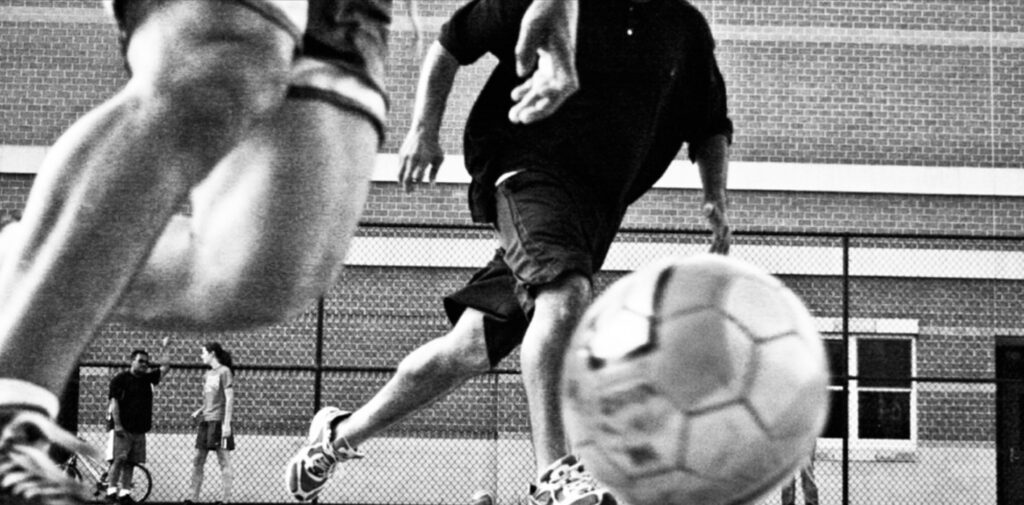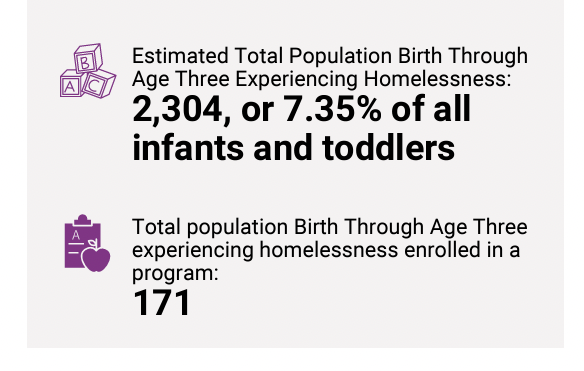Street soccer players use teamwork as a model to address homelessness
Sports teach participants lessons about trust, teamwork and responsibility. The D.C. Knights, a street soccer team in the District, gives homeless soccer players the opportunity to be students.
“We teach life lessons through soccer,” said Jeremy Wong, a coach of the D.C. Knights. “Therefore, we don’t have to bang those lessons over their head. That’s not our role because they get enough of that at the shelter.”

dribbles the ball while waiting for his turn in ongoing drill. Photo by Jon Howell.
Street soccer is a mini-version of soccer played on a sport court surface in an area the size of a basketball court. Players compete in fast-paced, four-versus-four soccer action. In each 15 minute game, an average of eight goals are scored. The D.C. Knights are composed of players associated with Neighbors Consejo, a nonprofit, social service agency in D.C. that ensures members of the Hispanic community receive necessary services.
“This is a motivation for homeless people to see a different way of life,” said Antonio Hernandez, a D.C. Knights player who began playing soccer when he was 10 years old in El Salvador. “We are busy with meetings all day at Neighbors Consejo. “When we come to play, we think better things because our minds are free. It is a break from everything.”
Teammate Solomon Alemu has similar thoughts about the importance of street soccer. “I am happy to get the chance to play and interact with people through my all-time favorite sport,” he said. “I always have fun at practice, and it has been a great way to socialize. Also, when I’m playing soccer, I forget about my worries and missing my family. I just get to enjoy having a good time.” Alemu began playing soccer when he was six years old in Ethiopia. He moved to the United States in 1997 and became a citizen in 2009.
“We are now seeing the fruits of three months of hard work,” said Omar Abdul-Baki, founder of the Neighbors Consejo D.C. Knights team, which began practicing in late March. “It is great to see all the team’s members talking to each other, to see what they have learned and to see their behavior change. Most of the players joined at different times, so it is interesting to see how they are all mingling.”

ball. Photo by Jon Howell.
Fellow coach Wong agrees. “We were a really ragtag bunch at the beginning,” he said. “It is amazing how quickly they progressed. They have come a long way toward understanding what’s going on in the game.” Wong hopes that the D.C. Knights become a sustainable team and that a street soccer league is created in the District so that numerous teams can compete.
D.C. Knights is one of 20 teams in an 18-city league operated by Street Soccer USA (SSUSA), a nonprofit organization whose mission is to use soccer as a tool for social change, moving homeless men, women and youth off the streets and into homes.
“Our soccer players come to us overwhelmed by the challenges of poverty and in many cases substance abuse and the trauma from their childhood,” said Lawrence Cann in a press release. “Through street soccer, they set goals, get a positive community and begin to make plans for their own future. We are proving that ending homelessness is a team sport.”
Cann founded SSUSA in 2004 with the belief that ending homelessness is a team sport. He sees homelessness as a byproduct of the breakdown of community and points out that homeless individuals have few relationships of trust, are isolated, have low levels of self-esteem and are overwhelmed by the obstacles that their situation presents. SSUSA is attempting to reverse that.

To encourage participants to score goals both on the field and in their lives, SSUSA requires participants to set three-, six- and 12-month life goals. With the help of coaches and volunteers, each player is required to meet and exceed their vision to improve their lives. SSUSA has also created the Job Academy, where participants are matched with services that can provide them with access to educational and employment opportunities. Within a year of joining the program, 75 percent of players have moved off the streets.
The annual SSUSA Cup will take place at the Washington Kastles Stadium from July 30 to August 1. More than 200 players from across the country will take part in the tournament.

At the end of the tournament, the national men’s and women’s teams will be chosen to represent the United States at the Homeless World Cup in Rio de Janeiro, Brazil, which takes place September 19-26. The eight males and eight females who are chosen will travel to the 56-nation tournament, connecting the homeless problem in the United States to the global problem of homelessness.
“The goal is to choose the players who have had the most impact on the program and have had the most advancement within the program,” Abdul-Baki said. “We want to choose people who represent the program best.”
For more information on SSUSA, visit their website at http://www.streetsoccerusa.org/








